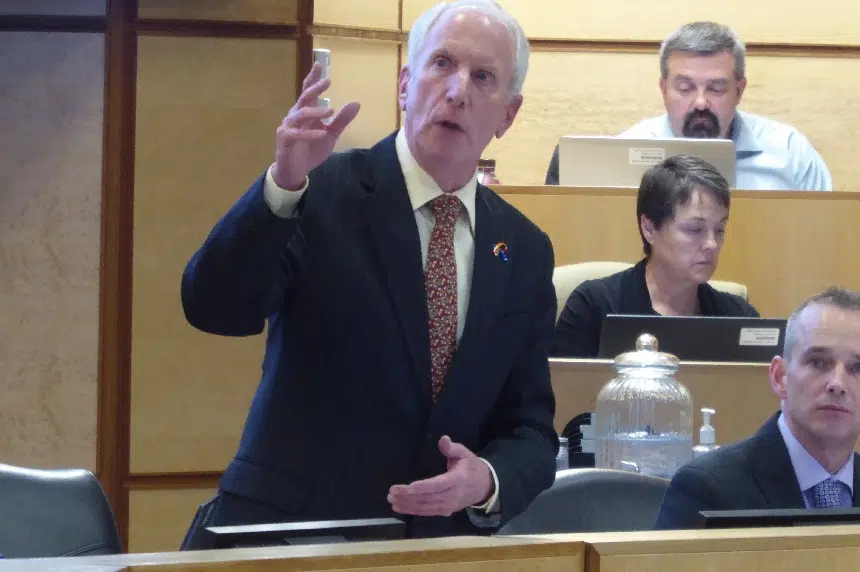A Regina councillor wants fewer meetings to happen behind closed doors at City Hall.
Earlier this week, Ward 2 Coun. Bob Hawkins put forward a motion at the city’s priorities and planning committee to have both items on a private meeting agenda moved to a public one.
“I’m a little concerned that we’re having too many issues discussed in private sessions, and I thought this was a time when I should signal that,” Hawkins said Friday.
“I thought both items shouldn’t be held in private; they should be held in public. I saw nothing in those items that caused me concern about personnel matters, human relations matters or contract matters.”
While Hawkins’ motion was defeated with a tie, a recommendation was made to have the clerk’s office develop a set of clearer criteria on what constitutes a private or public meeting.
However, city clerk Jim Nicol doesn’t expect that report to be much different than the legislation currently in place.
Nicol said there are already provisions “clearly stated” within The Cities Act as well as The Local Authority Freedom of Information and Protection of Privacy Act (LAFOIP), outlining how decisions are to be made.
Under Section 16 of LAFOIP, items can be moved to a private session if an exemption is granted for information containing things such as: Advice or recommendations; policy options developed for council or committee; employee relations; collective bargaining; instructions or negotiations on management plans that have not yet been implemented; or a disclosure of a pending policy or budgetary decision.
Any information that could interfere with contractual or other ongoing negotiations, or that “could be expected to prejudice the economic interest of the city,” would also be exempt under Section 17.
Meanwhile, The Cities Act mandates that — even if discussions are initially made in private — a final decision on the topic must be made in a public meeting.
According to Nicol, his office is “very careful” to ensure that any private discussion falls completely within the purview of the legislation.
“We know that these decisions have to be done with accordance of the law, and I assure the public that decisions that come forward from those committees’ or council’s private sessions are ultimately going to be determined in a final decision in the public realm,” Nicol explained.
“There is nothing behind closed doors; people should not think there is anything untoward or illegal going on here.”
Hawkins stressed he wasn’t triggered to put forward the motion because of any red flags in private meetings but because he feels residents deserve to know more of what goes on behind the scenes in terms of policy.
“I think that the public has a right to know how councillors perform, what their thinking is, what arguments they’re making — and that won’t happen if we do that kind of discussion in private,” he explained, adding there’s also an educational component to making more meetings public.
“It’ll increase public confidence if they see that public work is being done in public. It raises unnecessary suspicion when things are being done in private.”
Hawkins also noted that more public discussion means saving time because — regardless — private talks need to be had publicly before things are finalized.
“I think that takes up unnecessary time and we shouldn’t have to do business twice,” he said. “I think councillors should be prepared to stand up about issues on an agenda item and discuss them, and indicate to the public what their feelings are. It’s just all part of the democratic process.”
Until a report comes back from the city clerk’s office early next year, Hawkins said he’ll be “looking very closely at meeting agendas” and if he feels there could be items moved from a private to public agenda, he’ll make a motion to do just that.
“This is something that’s going to be important in improving the democratic transparency in the way we do business in Regina,” he said. “Secrecy is the crack cocaine of democracy.”











